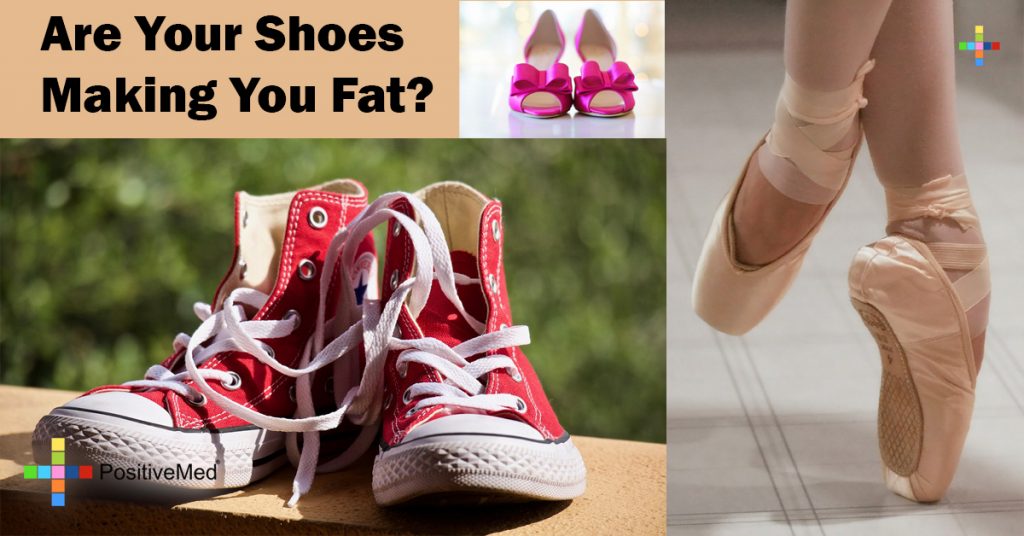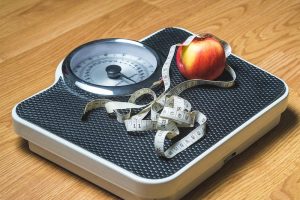
Are Your Shoes Making You Fat?
Ever thought your shoes could make you fat? After reading this, you may never shop for shoes the same way again. It is not always practical, or possible, to shop for shoes based on health issues, but you still can get unhealthy shoes as pain-free as possible with the help of experts.

The right shoes can make your look, they can help you look slim, smart, maybe even leave you in pain, which can result in weight gain due to inactivity. To confirm this Prevention conducted a test on 3 women around the age of 40 who were taken to a high-tech motion-analysis laboratory to test 4 varieties of shoes: high heels, toning sneakers, flip flops, and dress flats. The results were then compared with the comfort of most comfortable shoes, a pair of simple running shoes. At the lab the women were harnessed to sensors to measure joint and muscle activity so that the type of stress they go through can be traced. Check the results below:
• High heels
High heels make you look slimmer, taller, and change your posture, but regular walking in them can cause permanent damage. A 2011 Danish study found that wearing high heels can increase the risk of osteoarthritis times 6. Here is how high heels cause damage:
Tighter quads – When you stand with your toes pointed down and heels up it’s natural for your knees to slightly bend and arch your back to support your position. As a result, your quads have to overwork, which makes them tight and prone to injury. When you walk with high heels and knees bent you put twice as much pressure on your kneecaps, which can break the cartilage and increase the risk of arthritis.
Painful shins – high heels can put more stress on shin muscles, which control the forefoot. Regular strain on the shins can cause shin splints.
Knotty calves – Heels cause your calf muscles to shorten, over time this becomes permanent. A study published in the Journal of Experimental Biology revealed that those who regularly wore high heels had calf muscles 13% shorter on average than non-heel-wearers.
Lab result: The test subjects walked more slowly in heels than sneakers. It was found that wearing high heels every day can help you gain 5 lbs. each year due to decreased calorie burn.
• Toning sneakers
Many companies claim that shoes with rounded or rocker soles increase muscle activity and boost calorie burn which is not true. Rocker bottom shoes were originally invented to help people with pain in balls of the feet, says Dr. Leahy. Read on to see what these shoes can do:
Cause stress – The hard soles keep arches from naturally flexing which causes the arches to flatten and results in excess pronation, when the feet roll in when walking, which leads to under absorption of shock by your feet, which causes your back and knees to feel extra stress.
Teeter trouble – The testers were seen as slightly less stable in rocker-bottom shoes. There are many complaints on the Consumer Product Safety Commission’s website about injuries caused from toning shoes and broken bones caused by falls while wearing them. Recently Reebok handed over $25 million in consumer refunds for false claims about toning shoes.
Lab result: The testers butts and thighs were underworked while wearing toning shoes, compared to simple sneakers.
• Flat shoes and flip-flops
Surprisingly, even a basic ballet flat or casual canvas shoe, a popular alternative to unhealthy heels, can cause a lot of damage. The lab results for flat shoes revealed that the testers put about 25% more impact on heels with each step with flat soles, compared to pumps.
The constant grip of flip-flops keeps your arches flexing normally, which makes your forefoot compromise the way it pushes off when you step forward. The lack of powerful push-off was compensated by testers with their hips, forcing knees and hips to absorb more impact. In addition, your butt and the backs of your legs are less engaged in your stride, weakening those muscles over time, says Katy Bowman, a biomechanical scientist and the author of Every Woman’s Guide to Foot Pain Relief. The lab result showed that testers were about 2.5 times less stable in flip-flops than sneakers.
Next time you buy shoes consider these points.





